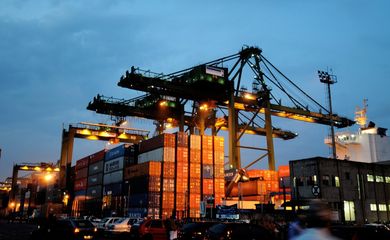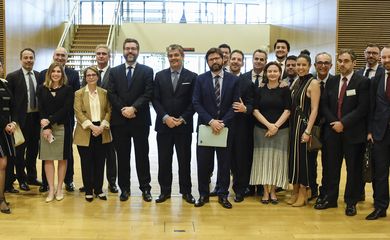Brazil auto industry gears up to compete with Europeans


The Brazilian industry and government will have to “run against time” to prepare the auto sector for the commercial agreement between Mercosur and the European Union (EU), said Luiz Carlos Moraes, head of Brazil’s national car makers’ association Anfavea. The competitiveness of the country’s auto makers must be improved if Brazil is to compete with cars manufactured in Europe, he argued.

The accord between the two economic blocs was inked last week and includes the elimination of import tariffs on 90 percent of products traded between the countries in the two groups. The terms are yet to be ratified by the Parliaments in the countries involved, and the implementation of the new rules will take place gradually over the course of 15 years.
Moraes admitted EU-made cars may gain ground in the Brazilian market after the reduction of import tariffs, currently at 35 percent. “Yes, it’s a threat, and we have to go and address it,” he stated during a talk on the car industry. In his view, a tax reform is necessary, in addition to improving bureaucratic and logistic conditions for the Brazilian industry.
Improving to export
With conditions ameliorated, Moraes believes cars assembled in Brazil could even enter the European market. “We’re considering the firm hypothesis of exporting,” he said. In his view, companies’ investment planning, which in the auto industry works with a seven-year outlook, will take the deal into account as an important factor.
The efforts to boost competitiveness are also expected to make prices in the Brazilian market better. “We’re seeking a reduction in production costs to export, but this apply to Brazilian consumers as well. The car industry works with a scale system—the larger the scale and the conditions to export, the more conditions to lower vehicle production costs, and this will benefit consumers,” he added.
2019 forecasts
On expectations for this year, Moraes pointed out that the Brazilian market registered last month the best June since 2015. The crisis in Argentina—the main target of Brazilian exports—however, is making a bulkier expansion more difficult.
Brazil’s vehicle output saw a 2.8 percent increase in the first six months of the year from the same period in 2018. Some 1.47 million units were manufactured, compared to 1.43 million vehicles in the first half-year of 2018.
Exports faced a 41.5 percent shrink from January to June against the first six months of 2018. Some 221.9 thousand vehicles were sold overseas in the time span, compared to 379 thousand last year. In June, the decline in exports stood at 37.9 percent, with 40.3 thousand units sold.
Moraes believes, nonetheless, that the performance in the second half-year may be even better than the first, reiterating Anfavea’s predicted 9 percent increase in production from 2018.




